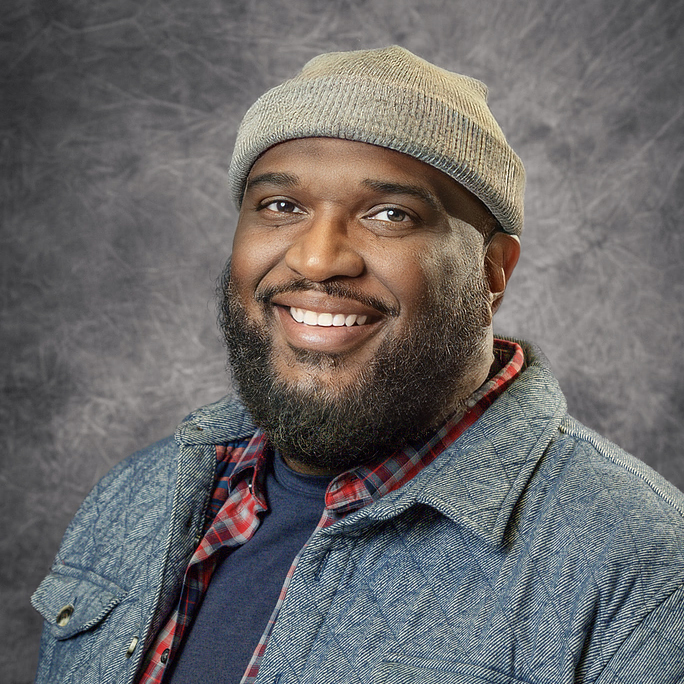By Patrosky Anderson
As a parent, I know what it feels like to picture my child some five, ten, or even twenty years from now. I imagine their career, where they live, whether they’ll be married with kids, etc. This older version of my children that I see in my mind is a mixture of my hopes and dreams for their lives combined with the way I see them navigating the world now; it’s part reality, part aspiration, and in some ways — my wishful thinking — like when I imagine my daughter will grow up and still like the sports teams we root for now. We’ll still get together in person or on the phone and cheer them on. It’s these thoughts that cause me to push or pull them in specific directions. Even though I know the work of transformation is the Lord’s, I still try to chisel them into the fearfully and wonderfully made men and women the Word of God says they are in Psalm 139:13–14.
If you’re a parent reading this, I know you can relate because you have similar thoughts about your children. Maybe it’s true for you, like it is me, that nowhere in my imagination do I picture my children being all these things apart from the faith their mother and I hold so dear. Even as I ponder over my own parenting while writing this article, I wonder whether or not I should consider the thought of my children remaining in this faith to be a foregone conclusion, or is that too an aspirational thought?
I was born in the late ’70s and grew up in the ’80s and ’90s. I accepted the Lord when I was 12 years old when I came home on my 12th birthday to find a pastor sitting in one of the two chairs my mother had placed on the front porch (that’s a conversation for another day). On Sept. 18, 1990, I said yes to the Lord and, at that time, was the only person in my house who had given their life to Jesus. For the first five years of my spiritual journey, I navigated it with no direction. However, I still managed to go through “true love waits” twice, attend a Promise Keepers conference, go on three service projects, two mission trips, and countless outreach events because Christian youth group culture can be very active. It does an excellent job of giving students opportunities to model and celebrate their faith, which I enjoyed.
And that’s not to say that it does these things to the detriment of true transformation. Still, the group I was part of showed me what a life utterly devoted to Christ could look like: denying my flesh, sharing the gospel, serving the Lord both in the country and out, worshiping God, attending church, all the things. Still, I didn’t experience real change in my life until my mother gave her heart to the Lord. It wasn’t until I had someone modeling what imperfect devotion to the Lord looked like that I began to grow in my faith. My mother made mistakes and struggled, and she was open about trying to surrender her life more and more to Jesus in a world that she felt was pulling her in multiple directions. My mother read her Bible faithfully at the kitchen table each day regardless of how yesterday went, and she encouraged me to do more than attend church; she encouraged me to be more like Christ.
_
“Seeing my mother’s faith made me feel like I wasn’t simply striving to be a Christian, but instead I was someone who Christ saved.”
_
It’s hard to explain, but seeing my mother’s faith made me feel like I wasn’t simply striving to be a Christian, but instead I was someone who Christ saved, which was something to be proud of. My story is not unique; many of you reading this have similar stories, reinforcing the factual statement that parental involvement is paramount to a developing young person. So many other arenas have figured this out and routinely advocate parents to partner with them if not take the lead. For example, look at education; it’s proven that students with involved parents are 81% more likely to graduate high school, and 95% of students with involved parents have better mental and physical well-being (Baig et al., 2021). Plain and straightforward, parent involvement just works, which makes me wonder: If a parent’s involvement in a child’s life is so formative, why don’t pastors strategically use us more often?
Kids/Youth Ministry Enough?
Having been a NextGen/family pastor for the last 25 years before becoming the lead pastor of Renovation Church, I can say that the youth and kids pastor at your local church loves your children. They want to see more from them than just behavior modification; they want to show them what being a disciple of Christ looks like; they want our children to have a genuine and authentic relationship with Jesus.
But the current system we have in the church, by and large, is that we parents, for a good reason, trust the pastor to train, equip, and ultimately disciple our kids by way of youth groups and kids ministry programs while we sit in church. To be clear, I’m not suggesting this model is somehow broken. I’m simply saying that I’m not sure it’s enough. I’m not sure that the highly active youth and kids ministry that is immersed in Scripture, engaging the community and modeling Christ is enough to help students overcome this ever-changing social media, digitally driven world where the pressures on young people in every arena are at an all-time high while the number of hours they sleep per night is at an all-time low (Child Mind Institute, 2023).
_
“Parents need to reclaim the mantle of spiritually discipling their children, while we pastors take up the mantle of training and equipping parents.”
_
Reclaiming the Mantle
We need two things to happen at the same time to help our young people grow in their faith. Parents need to reclaim the mantle of spiritually discipling their children, while we pastors take up the mantle of training and equipping parents to better facilitate this task like Ephesians 4:10–13 calls us to do, get creative and find ways to make the parents the priority, because there is no better “work of ministry” for a parent than to raise our children in the way they should go.
I can’t stress enough that I feel our youth and kids pastors are doing a good job ministering to our young people amid this turbulent culture. I’m just also suggesting we open the aperture of our ministry plans to include a higher degree of parent involvement.
In addition to pastoring Renovation Church, I host the “Practical Parenting” podcast where we’re trying to better resource pastors and parents to make this shift. It’s a process that doesn’t happen overnight but is well worth the time spent for both pastors and parents, but most of all for our children.
References
Baig, T., Ganesan, G. S., Ibrahim, H., Yousuf, W., & Mahfoud, Z. R. (2021, November 8). The Association of Parental Involvement with adolescents’ well-being in Oman: Evidence from the 2015 Global School Health Survey – BMC Psychology. BioMed Central. https://bmcpsychology.biomedcentral.com/articles/10.1186/s40359-021-00677-5#Bib1
Why are teenagers so sleep-deprived? Child Mind Institute. (2023, November 8). https://childmind.org/article/teenagers-sleep-deprived/#:~:text=Experts%20say%20teens%20need%20over,screen%20time%20and%20unreasonable%20expectations.
+

Patrosky Anderson is the lead pastor of Renovation Church in Portage, Michigan. He also hosts the “Practical Parenting” podcast where parenting and discipleship merge. The podcast gives listeners access to real people, doing real discipleship to help parents better disciple their children. Click here to listen, and click here to subscribe to the podcast.
Great Writing + Discipleship Materials
RELATED ARTICLES










